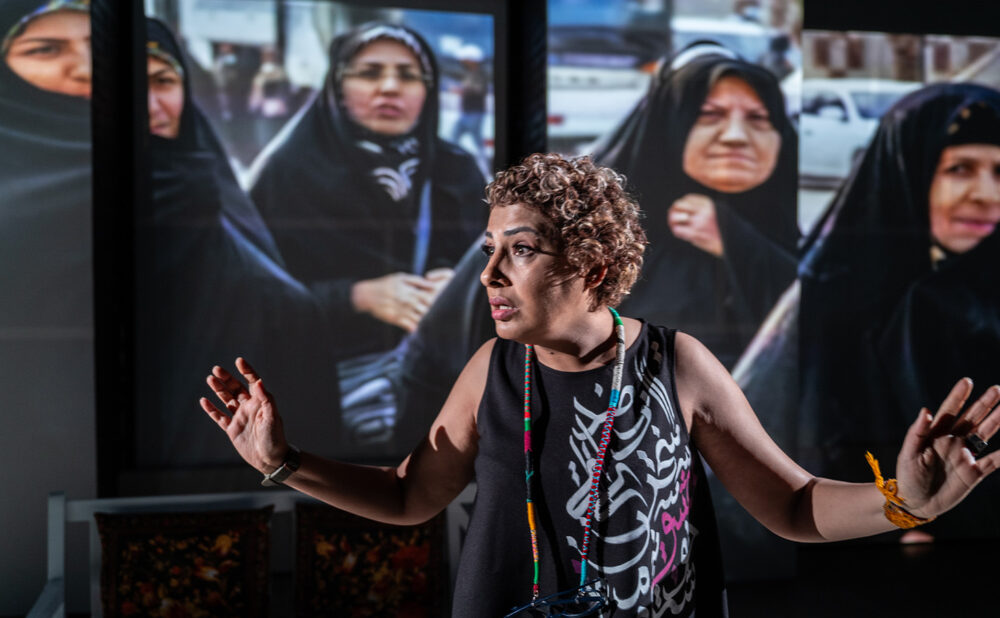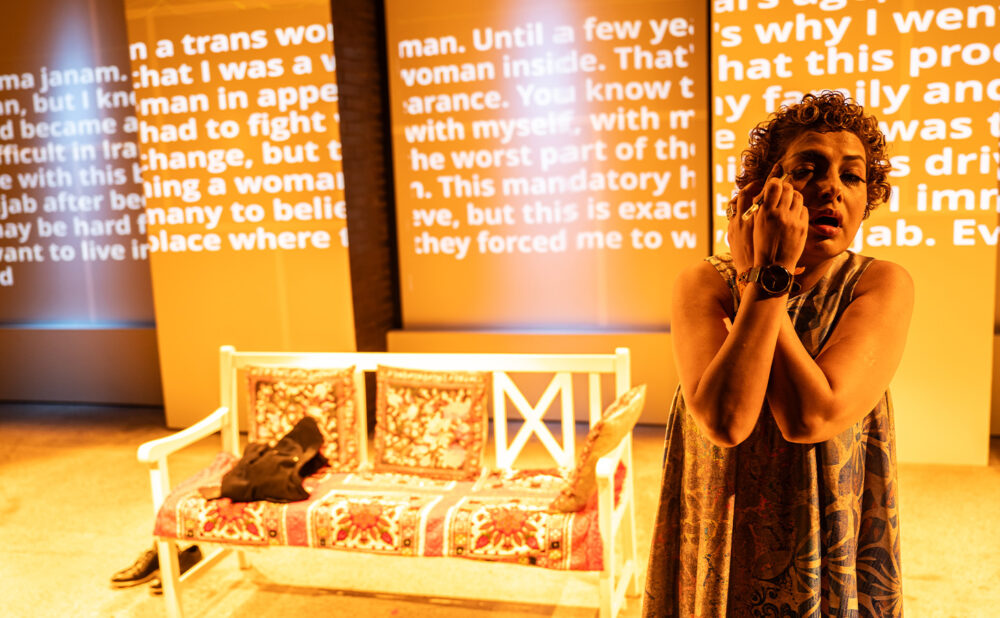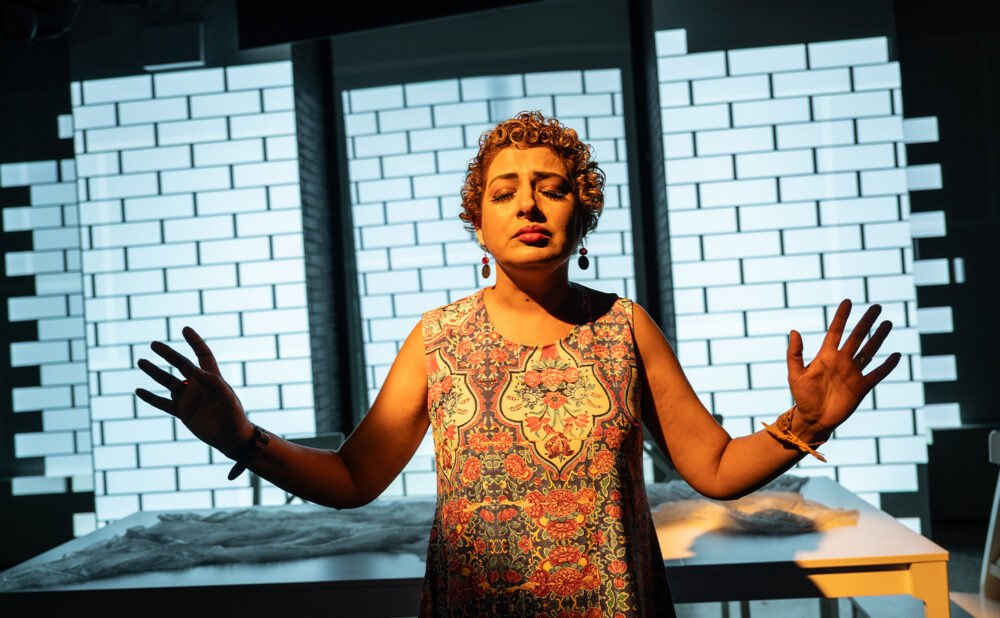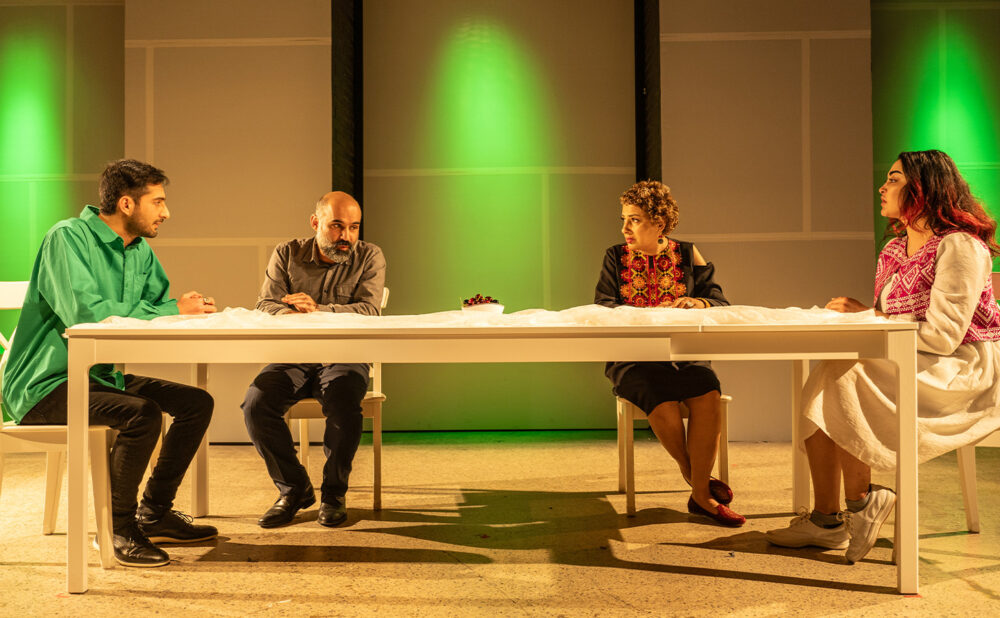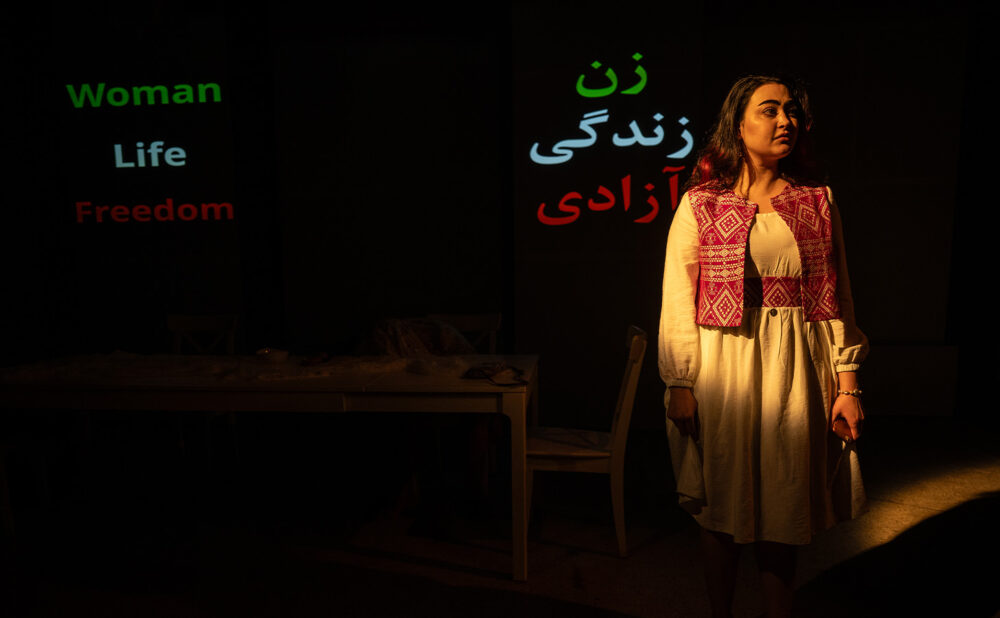Review: ‘Earworm’ digs into the skin at Crow’s Theatre
Love rather than hate at centre of tale of surviving Iranian regime abuse, new beginnings
What: Earworm
Where: Crow’s Theatre, 345 Carlaw Ave.
When: Now, until Sun., Feb. 25
Highlight: Visual acts of care between loved ones, beautifully blocked by intimacy director Anisa Tejpar
Rating: NNN (out of 5)
Why you should go: Award-winning director-playwright Mohammad Yaghoubi executes a compelling political message against the Islamic regime in Iran.
HAVE YOU EVER had someone’s voice stuck in your head? A voice that eats away at your skin, nerves, muscles and bone until it’s the only thing you can think about? How about for 20 years? That is the reality for Homa, an immigrant from Iran who’s fled persecution from the Islamic regime, in award-winning playwright/director Mohammad Yaghoubi’s Earworm.
Lights up. We meet Homa (Aida Keykhaii) and her son Pendar (Amir Maghami) in Canada as she reluctantly prepares to meet Pendar’s conservative Muslim girlfriend, Fatemeh (Parya Heravi), and her father, Mohammad (Amir Zavos).
The play chronicles the days leading up to the families’ meeting, interlaced with episodes from Homa’s political and personal podcasts. When Homa’s Iranian past collides with her life in Canada, parental bonds, religion and personal politics are challenged.
Homa’s podcast episodes are addressed directly to the audience. We get insight into her psyche and personal politics. She addresses the audience with a sermon-like confidence and political charm as she recounts her time in Iran through her first period, her rejection of hijab decorum and her thoughts on her son’s blossoming relationship.
Her podcasts are interlaced with projections in the background of actual people and places, both amusing and poignant, in combination with her words. Keykhaii is compelling as Homa and plays her with equal parts vulnerability and strength. As an audience member, I begin to feel nervous for her safety — even though she is in the safety of her Canadian home — when she speaks openly about her hatred of the Iranian military.
Crow’s Studio holds Homa and Pendar’s home in Act I, with the audience sitting around the stage in an L shape, which is blocked in an effective way by director Yaghoubi as a lived-in family space. The set by Amin Shirazi colours in the mother-son dynamics, the messy and vibrant apartment reflecting their relationship. It provides a slick contrast to the set in Act II, which takes place in Fatemeh’s apartment, with furniture that is purposefully white and slightly devoid of life, reflecting the unsettling tone of the family dinner.
Performances, though all emotionally charged and invested, sometimes varied in terms of believability, bordering on a soap opera style. This might have worked with the somewhat Brechtian approach of this piece of political theatre. But actors fluctuated in and out of more grounded naturalism and slightly over-the-top emotional portrayals that feel a little imbalanced rather than intentional. This is not a fatal flaw though, as performances in the tension-filled Act II dinner scene were engrossing — Zavos especially gives a grounded and gritty performance.
One of the most special things about Earworm is how Yaghoubi handles love versus hate on stage. There is plenty of kissing and hugging and loving — visual acts of love and care between family and lovers — beautifully blocked by intimacy director Anisa Tejpar. Heravi’s does a lovely job of portraying Fatemeh’s tender love and care for Pendar. But there is no actual staged violence in this show: a clear message from this playwright and director to focus on love rather than give voice to violence.
Earworm is being performed both in English and Farsi, and I was lucky enough to attend the opening night in Farsi with English subtitles playing on a small screen on the wall above the actors. It was so lovely to be able to hear this piece in its original syllabic melodies — how it was born in the playwright’s head.
Earworm is beautifully nuanced. Yaghoubi manages to send a political message about taking power away from the Islamic regime while telling a compelling story of parenting, immigration, trauma and love.

